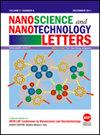Facile Synthesis and Nano-Silver Encapsulation of Paeonia emodi for Cardioprotective and Antihyperlipidemic Nursing Care Potentials
引用次数: 1
Abstract
Paeonia emodi is a medicinal plant that is a vital family group of Paeoniaceae and traditionally utilized for treating cardiovascular diseases, such as hypertension, heart failure, atherosclerosis, epilepsy, and palpitations. In this work, we have constructed P. emodi (Pemodi. EA) ethyl acetate subsegment of which was exposed to gain fractions via column chromatography. These subsegments were confirmed by various electroscopic methods. Further, the subsegments were examined for their cardioprotective property on induced isoproterenol hydrochloride (ISO) myocardial infractions (MIs) in nude mice. Pemodi-EA-40 was utilized with maximum segment for synthesis of silver nanoparticles (Pemodi.EA-40@AgNPs). The extreme active segments Pe-EA-40 were examined for antihyperlipidemic, cardioprotective, and histopathological examinations. The body weights of Pemodi.EA-40 (100 mg/kg) remarkably reduced the blood levels of Alanine Aminotransferase (ALT), Aspartate Aminotransferase (AST), Lactic Acid Dehydrogenase (LDH), and Creatine Phosphokinase (CPK) associated with induced ISO treated groups. Pemodi.EA-40@AgNPs also reduced the ALT, AST, LDH, and CPK connected to the Pemodi.EA-40, respectively. The biochemical parameters and histological results reduced the changes as compared to induced ISO treated groups. The outcomes of our examinations proposed that the Pemodi.EA-40@AgNPs medicinal plant improves beneficial profiles of medicinal plant extract fragments for treatments and nursing care of myocardial infractions and atherosclerosis.芍药的简易合成及纳米银包埋对心脏保护和抗高脂血症的护理作用
芍药是芍药科重要的一科药用植物,传统上用于治疗心血管疾病,如高血压、心力衰竭、动脉粥样硬化、癫痫和心悸。在这项工作中,我们构建了P. emodi (Pemodi)。其中乙酸乙酯亚段通过柱层析暴露获得分数。这些亚段是通过各种电显微镜方法证实的。进一步,研究了这些亚段对诱导的盐酸异丙肾上腺素心肌梗死的心脏保护作用。Pemodi-EA-40利用最大片段合成纳米银(Pemodi.EA-40@AgNPs)。对Pe-EA-40极活性段进行抗高脂血症、心脏保护和组织病理学检查。peemodi的体重。EA-40 (100 mg/kg)显著降低了诱导ISO处理组血中谷丙转氨酶(ALT)、天冬氨酸转氨酶(AST)、乳酸脱氢酶(LDH)和肌酸磷酸激酶(CPK)水平。Pemodi。EA-40@AgNPs也降低了Pemodi连接的ALT、AST、LDH和CPK。分别EA-40。与诱导的ISO处理组相比,生化参数和组织学结果的变化减小。我们的研究结果表明,Pemodi。EA-40@AgNPs药用植物改善了药用植物提取物片段对心肌梗死和动脉粥样硬化的治疗和护理的有益概况。
本文章由计算机程序翻译,如有差异,请以英文原文为准。
求助全文
约1分钟内获得全文
求助全文
来源期刊

Nanoscience and Nanotechnology Letters
Physical, Chemical & Earth Sciences-MATERIALS SCIENCE, MULTIDISCIPLINARY
自引率
0.00%
发文量
0
审稿时长
2.6 months
 求助内容:
求助内容: 应助结果提醒方式:
应助结果提醒方式:


